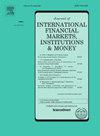股票市场自由化与中小企业出口
IF 6.1
2区 经济学
Q1 BUSINESS, FINANCE
Journal of International Financial Markets Institutions & Money
Pub Date : 2025-06-13
DOI:10.1016/j.intfin.2025.102182
引用次数: 0
摘要
本文研究了股票市场自由化对中小企业出口的影响。利用中国深港通计划的启动作为准实验,我们采用差异中的差异设计来检验外国对中国上市中小企业投资的放松如何刺激这些企业的出口。我们发现,符合沪港通条件的中小企业在后开放时期的出口倾向和出口强度的增长幅度大于不符合沪港通条件的中小企业对照组。我们还确认,股票市场自由化增加了境外机构投资者的投资,减少了中小企业的融资约束,从而鼓励风险分担,为中小企业提供更多信息和资源,增强其出口意愿和能力。此外,我们发现股票市场自由化对中小企业出口的影响取决于行业、企业和高管特征,这些特征决定了企业的资源需求以及他们对与出口相关的风险和不确定性的看法。最后,我们提供了适度的证据表明,股票市场自由化鼓励对外直接投资。总体而言,本文揭示了股票市场自由化对中小企业出口的促进作用,解释这种关系的潜在机制,以及影响这种关系强度的偶然性因素。本文章由计算机程序翻译,如有差异,请以英文原文为准。
Stock market liberalization and exports of small and medium-sized enterprises
The paper investigates the impact of stock market liberalization on the exports of small and medium-sized enterprises (SMEs). Using the launch of China’s Shenzhen-Hong Kong Stock Connect Program as a quasi-experiment, we apply a difference-in-differences design to examine how the relaxation of foreign investment in listed Chinese SMEs stimulates these firms’ exports. We find that SMEs qualified for the Stock Connect program are associated with a larger increase in export propensity and export intensity in the post-liberalization period than the control group of SMEs unqualified for the program. We also confirm that stock market liberalization increases foreign institutional investor investment and reduces SMEs’ financing constraints, thus encouraging risk sharing, providing more information and resources to SMEs, and increasing their willingness and ability to export. In addition, we show that the influence of stock market liberalization on SMEs’ exports is contingent on industry, firm, and executive characteristics that shape firms’ resource needs and their perceptions of risk and uncertainty associated with exporting. Finally, we provide modest evidence that stock market liberalization encourages outward foreign direct investment. Overall, our paper reveals the facilitating role of stock market liberalization in boosting SMEs’ exports, the underlying mechanisms explaining this relationship, and the contingency factors affecting the strength of this relationship.
求助全文
通过发布文献求助,成功后即可免费获取论文全文。
去求助
来源期刊
CiteScore
6.60
自引率
10.00%
发文量
142
期刊介绍:
International trade, financing and investments, and the related cash and credit transactions, have grown at an extremely rapid pace in recent years. The international monetary system has continued to evolve to accommodate the need for foreign-currency denominated transactions and in the process has provided opportunities for its ongoing observation and study. The purpose of the Journal of International Financial Markets, Institutions & Money is to publish rigorous, original articles dealing with the international aspects of financial markets, institutions and money. Theoretical/conceptual and empirical papers providing meaningful insights into the subject areas will be considered. The following topic areas, although not exhaustive, are representative of the coverage in this Journal. • International financial markets • International securities markets • Foreign exchange markets • Eurocurrency markets • International syndications • Term structures of Eurocurrency rates • Determination of exchange rates • Information, speculation and parity • Forward rates and swaps • International payment mechanisms • International commercial banking; • International investment banking • Central bank intervention • International monetary systems • Balance of payments.

 求助内容:
求助内容: 应助结果提醒方式:
应助结果提醒方式:


